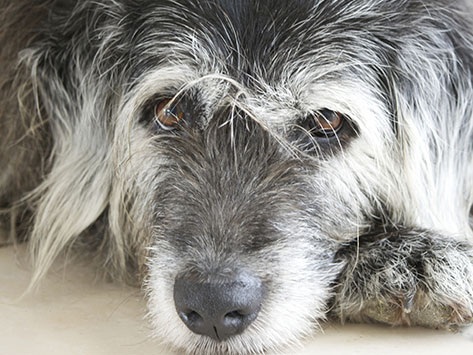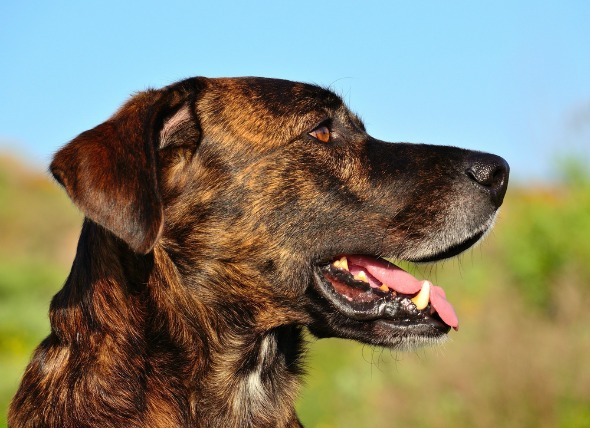
Adenocarcinoma is a glandular skin cancer that occurs when a malignant growth develops from sebaceous glands and sweat glands. Skin cancer appears as solid, firm or raised areas (lesions) on the skin. The lesions can bleed (ulcerate) and the area may swell or become red. While these tumors are most common on the face, they can occur anywhere the animal has sweat glands. Treatment options are generally effective when started early and in many cases leads to a positive outcome.
The condition or disease described in this medical article can affect both dogs and cats. If you would like to learn more about how this disease affects cats, please visit this page in the PetMD health library.
Lesions can be present on the dog's body as a single lesion or in many different areas. Skin cancer can appear as a solid, firm mass, or a raised lesion on the skin.
The cause of skin cancer is currently unknown.
For a proper diagnosis to be made, a biopsy will be necessary. Your veterinarian will take a tissue sample of the tumor to evaluate under a microscope, and will more than likely be performing a cytologic examination of the structure of the cells from the sample to determine whether the disease has spread throughout the body, and the speed at which it is metastasizing (spreading). An X-ray may also be used to determine if internal tumors are present.
Removal of the tumor is performed surgically. Lymph nodes may also need to be drained if affected by the cancer. Radiation therapy can then be used to treat the lymph nodes to prevent recurrence and spreading (metastasis) of the disease into other areas. Chemotherapy drugs are also used to treat tumors. The degree of treatment is determined by the severity the disease.
The long-term prognosis is often good for animals treated early and aggressively. Aggressive treatment often involves surgery, radiation, and chemotherapy.
There is currently no way to prevent skin cancer.
 Rickettsial Infection in Dogs
Ehrlichiosis in Dogs
Ehrlichiosis in dogs is a ri
Rickettsial Infection in Dogs
Ehrlichiosis in Dogs
Ehrlichiosis in dogs is a ri
 5 Signs of Dog Dementia
by Katherine Tolford
While your beloved senior do
5 Signs of Dog Dementia
by Katherine Tolford
While your beloved senior do
 Acute Respiratory Distress Syndrome (ARDS) in Dogs
Shock Lung in Dogs
Acute Respiratory Distress Syn
Acute Respiratory Distress Syndrome (ARDS) in Dogs
Shock Lung in Dogs
Acute Respiratory Distress Syn
 Nose Cancer (Adenocarcinoma) in Dogs
Nasal Adenocarcinoma in Dogs
Nose cancer (or nasa
Nose Cancer (Adenocarcinoma) in Dogs
Nasal Adenocarcinoma in Dogs
Nose cancer (or nasa
 Rapid Heart Beat in Dogs
Supraventricular Tachycardia in Dogs
Supraventric
Rapid Heart Beat in Dogs
Supraventricular Tachycardia in Dogs
Supraventric
Copyright © 2005-2016 Pet Information All Rights Reserved
Contact us: www162date@outlook.com